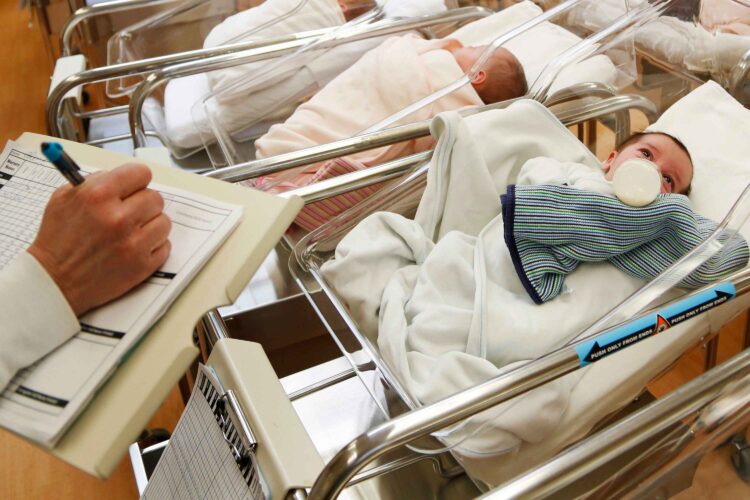A combination of this new “girl boss” culture mixed in with men unwilling to commit has resulted in an alarming decline of birth rates in the United States.
The massive drop in fertility rates in the U.S. is expected to trigger a “calamitous effect” on the economy according to economic experts when speaking with Fox News.
According to the Centers for Disease Control and Prevention, the #birthrate in the United States is on a steady decline. The CDC reports that birth rates are currently half of what they were in the beginning of the 1960s. #familyplanning
Read More: https://t.co/aNLzoS0hx9 pic.twitter.com/Ije2Q2GpUU— Grace Advertising (@GraceAdvConsult) July 16, 2021
“The U.S. birth rate is steeply declining, mimicking the patterns of other developed nations worldwide, causing the global population to stop growing sometime this century. The U.S. and other developed nations dropped below the replacement rate in recent years, meaning we are not producing enough children to maintain the population, much less grow it,” demographic strategist Bradley Schurman explained to Fox News Digital. “Today, three-quarters of U.S. counties and half of the states have deaths outpacing births.”
According to Center for Disease and Control (CDC) data, between 2007 and 2022, the U.S. population rate fell by 22 percent. No state reported an increase in birth rates as much as some experienced a slower decline than others.
“The U.S. birth rate has fallen by 20% since 2007. This decline cannot be explained by demographic, economic, or policy changes.” Source: https://t.co/SFTcfECoFV pic.twitter.com/y6l1XuyNQr
— Gabor Gurbacs (@gaborgurbacs) May 17, 2023
“Is this a trend among young women, to celebrate not having family?” Fox News host Jesse Watters asked writer Ashley St Clair from The Babylon Bee on his show, Jesse Watters Primetime.
“It’s a very anti-natalist agenda, anti-human agenda in my opinion.” St Clair added, “We do have a declining birth rate – we saw it with Rome, they had a declining birth rate right before the fall of Rome. It’s happening here in America, it’s happening in Japan, and this happens all the time in prosperous nations. We need to reject this culture or it’s going to be very bad.”
Learn the benefits of becoming a Valuetainment Member and subscribe today!
A 2022 analysis from the Vital Statistics Rapid Release Program revealed, however, that of the 99 percent of all birth certificates in 2022, there was a less than 1 percent decline in total births from 2021 to 2022 – decreasing from 3,664,292 babies in 2021 to 3,661,220 in 2022.
The data also noted that 2021 was the first year since 2014 that the U.S. birth rate had increased, while U.S. births dropped relatively significantly due to the pandemic.
“Below-replacement fertility means closing schools, shrinking college enrollments, fewer workers and consumers, and not enough taxes to pay for entitlements. We’re already seeing low fertility fallout hitting schools and colleges. But it will have big consequences for the economy as well, given that there will be relatively fewer workers and consumers, and less entrepreneurial activity, as the population of young adults in America falls across much of the nation,” Institute for Family Studies senior fellow Brad Wilcox told Fox News.
Demographic Intelligence chief information officer Lyman Stone added that declining and delayed marriage rates also contribute to falling birth rates.
“Marital fertility rates have not declined by nearly as much. The delayed or postponement of marriages is the simplest sort of compositional factors behind falling birthrates,” Stone said. “Income is coming later and later in life. The result is these milestones get delayed. You buy a house later, you get married later, you have a certain amount of savings later. All these things come later, and the problems come later, but the ability to have a child is a kind of biological constraint. So, by the time people feel ready to handle having children it’s sometimes too late.”
It is not just the United States who are predicted to feel the effects of a drop in birth rates – China has also seen a significant drop in its population. Patrick Bet-David discusses the problems that led to China’s decline in birth rates.


















Add comment